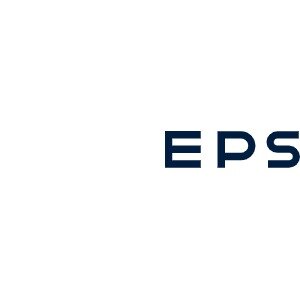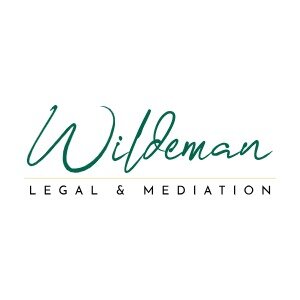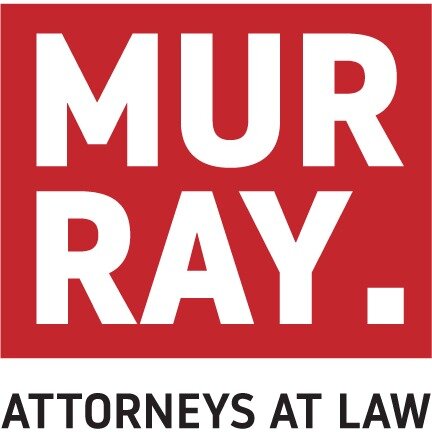Best Renewable & Alternative Energy Lawyers in Willemstad
Share your needs with us, get contacted by law firms.
Free. Takes 2 min.
List of the best lawyers in Willemstad, Curaçao
About Renewable & Alternative Energy Law in Willemstad, Curaçao
Renewable and alternative energy encompasses energy sources like solar, wind, and bioenergy that offer sustainable and environmentally friendly alternatives to fossil fuels. In Willemstad, Curaçao, the growing emphasis on sustainable development and energy self-sufficiency has led to increased interest in renewable and alternative energy solutions. The local government and utility providers are working toward integrating more clean energy into the island's grid, aiming for a significant reduction in carbon emissions and dependence on imported fuels. As a result, there is an evolving legal landscape concerning permitting, installation, operation, and regulation of renewable energy systems.
Why You May Need a Lawyer
Navigating the renewable and alternative energy sector in Willemstad, Curaçao can be complex due to regulatory requirements, technical standards, and contractual obligations. Here are some common scenarios where legal assistance may be crucial:
- Obtaining permits for installing solar panels or wind turbines
- Negotiating contracts for renewable energy supply or construction
- Resolving disputes with utility companies or service providers
- Understanding tax incentives, subsidies, or government grants
- Complying with environmental regulations and zoning laws
- Protecting intellectual property related to new energy technologies
- Forming partnerships or securing investments for energy projects
A lawyer experienced in renewable and alternative energy law can help protect your interests, ensure compliance with local regulations, and guide you through complex processes.
Local Laws Overview
Curaçao's legal framework for renewable and alternative energy is based on both local statutes and international commitments to sustainable development. Key aspects relevant to Willemstad include:
- Permitting and Licensing: Installation of solar panels, wind turbines, and other renewable energy infrastructure generally requires permits from local authorities to comply with building codes and safety standards.
- Land Use and Zoning: Certain areas may have restrictions or specific requirements for energy projects. Zoning laws must be consulted to determine if renewable installations are permitted on a given property.
- Energy Grid Access: Connection of private renewable energy systems to the grid is subject to Curaçao’s grid regulations. Agreements with the local utility company, Aqualectra, are typically needed to sell surplus energy or ensure compatibility.
- Incentives and Subsidies: Curaçao periodically introduces incentives to promote renewable energy adoption. These may include rebates, tax credits, or financing programs for homeowners and businesses investing in renewables.
- Environmental Protection: New installations must meet environmental guidelines to minimize negative impacts, as overseen by the Ministry of Health, Environment and Nature (GMN).
Staying informed about changing regulations and ongoing government initiatives is critical for successful renewable energy projects in Willemstad.
Frequently Asked Questions
What types of renewable energy are commonly used in Willemstad, Curaçao?
The most common renewable energy sources on the island are solar photovoltaic (PV) systems and wind energy. Some projects also explore bioenergy from organic waste.
Do I need a permit to install solar panels on my property?
Yes, in most cases you will need a permit from the local municipality to ensure safety, proper installation, and compliance with building codes.
Can I sell excess energy produced by my solar panels back to the grid?
Selling surplus energy back to the grid requires an agreement with the local utility company, Aqualectra. Regulations and compensation schemes can change, so it is important to check the latest requirements.
Are there government incentives available for renewable energy projects?
Curaçao has occasionally offered financial incentives such as tax breaks or subsidies for the adoption of renewables. The specifics of these programs can vary, so consulting an energy law specialist is recommended.
What are the main legal requirements for starting a commercial renewable energy project?
Key legal requirements include obtaining all necessary permits, complying with zoning and environmental regulations, and securing contracts with relevant stakeholders such as landowners and utility companies.
Who regulates renewable energy in Curaçao?
Renewable energy is primarily regulated by the Ministry of Economic Development, the Ministry of Health, Environment and Nature (GMN), and Aqualectra, the local utility company.
Can foreign companies invest in renewable energy projects in Willemstad?
Yes, foreign investment is possible. However, there are rules regarding ownership, licensing, and taxation that should be carefully reviewed with legal counsel.
Are there restrictions on where renewable energy installations can be built?
Yes, local zoning laws and environmental regulations may limit where installations can be placed, particularly in protected or residential areas.
What environmental considerations must be taken into account?
Projects must minimize impacts on the environment, avoid protected zones, and may require environmental assessments as part of the permitting process.
How can a lawyer assist me with my alternative energy project?
A lawyer can help with permit applications, contract negotiations, compliance with regulations, securing incentives, addressing disputes, and guiding you through every legal step of your renewable energy project.
Additional Resources
If you are seeking legal advice or more information about renewable and alternative energy in Willemstad, Curaçao, consider reaching out to the following resources:
- Ministry of Economic Development (Ministerie van Economische Ontwikkeling): Oversees economic policy and investment in renewable energy.
- Ministry of Health, Environment and Nature (GMN): Responsible for environmental regulations and permits.
- Aqualectra: The local utility company managing electricity and grid access.
- Curacao Chamber of Commerce & Industry: Offers guidance and support for businesses investing in energy projects.
- Local renewable energy associations: These organizations provide up-to-date information, networking, and advocacy for clean energy initiatives.
- Local law firms with expertise in energy law: Specialized legal professionals with experience in energy, construction, and environmental law.
Next Steps
If you require legal assistance with a renewable or alternative energy matter in Willemstad, Curaçao, start by clearly identifying your needs such as permitting, investment, or dispute resolution. Gather all relevant documents and information regarding your project or issue. Next, consult an experienced legal professional specializing in renewable energy law to get tailored advice. They can help review contracts, ensure regulatory compliance, apply for incentives, and represent you in negotiations or legal proceedings. Reaching out to government agencies and industry organizations can also provide valuable insights and support. Acting proactively and seeking professional guidance early can save time, reduce costs, and set your project up for success.
Lawzana helps you find the best lawyers and law firms in Willemstad through a curated and pre-screened list of qualified legal professionals. Our platform offers rankings and detailed profiles of attorneys and law firms, allowing you to compare based on practice areas, including Renewable & Alternative Energy, experience, and client feedback.
Each profile includes a description of the firm's areas of practice, client reviews, team members and partners, year of establishment, spoken languages, office locations, contact information, social media presence, and any published articles or resources. Most firms on our platform speak English and are experienced in both local and international legal matters.
Get a quote from top-rated law firms in Willemstad, Curaçao — quickly, securely, and without unnecessary hassle.
Disclaimer:
The information provided on this page is for general informational purposes only and does not constitute legal advice. While we strive to ensure the accuracy and relevance of the content, legal information may change over time, and interpretations of the law can vary. You should always consult with a qualified legal professional for advice specific to your situation.
We disclaim all liability for actions taken or not taken based on the content of this page. If you believe any information is incorrect or outdated, please contact us, and we will review and update it where appropriate.













